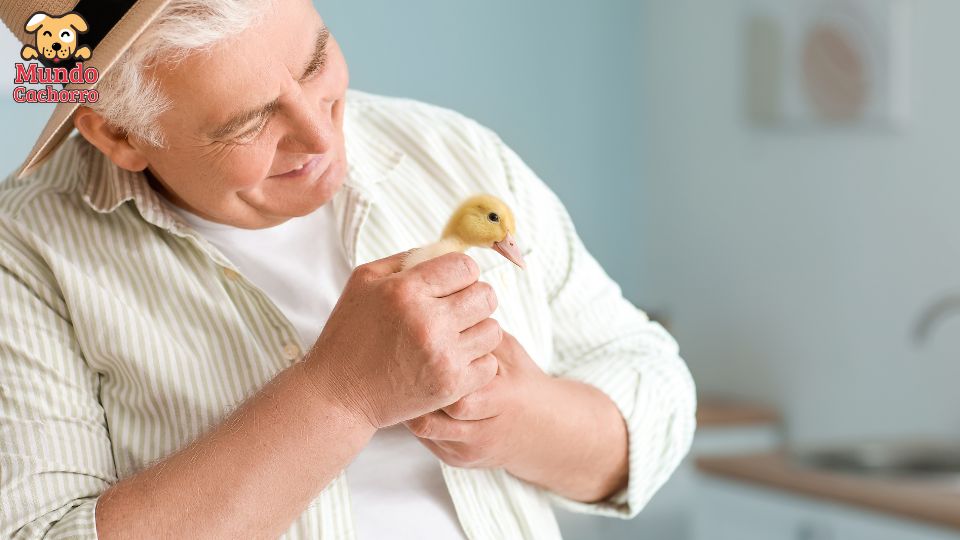Owning a pet duck can be a unique and rewarding experience, but it requires proper preparation and a commitment to its care and well-being. If you have wondered about whether it is possible to have a duck in a house, the answer is yes. But before doing so, it is important to consider some important aspects to ensure the welfare of the animal and avoid legal or cohabitation problems.
Indice
What a duck should eat
An important consideration about having a pet duck is its life expectancy. Although the life expectancy of a duck depends on the species and the conditions in which it lives, in general, a domestic duck can live between 9 and 12 years. However, some ducks can live up to 20 years or more, especially if they receive good care and live in an environment free of stress and predators. 
What to consider for a duck at home
Here are some important considerations to keep in mind when bringing a duck home:
- Research and education: Before acquiring a duck, it is essential to research and educate yourself about its specific needs. This includes knowing their habitat, feeding, veterinary care and behavioral requirements. In addition, it is important to familiarize yourself with local laws and regulations regarding the keeping of domestic birds.
- Adequate space and habitat: Ducks need outdoor space to move and explore. Ideally, you should have a large backyard or fenced outdoor area where the duck can roam safely. You will also need to provide a large pond, pool or bathtub where they can swim and dive, as ducks are aquatic birds and enjoy water.
- Safe Haven: In addition to outdoor space, your duck will need a safe haven to protect it from the elements and predators. You can build a coop or similar shelter that provides protection from wind, rain and cold, as well as a place for the duck to rest and sleep at night.
- Proper feeding: Ducks have an omnivorous diet and need a balanced diet that includes a combination of commercial waterfowl food, fresh vegetables, fruits, insects and small invertebrates. It is important to provide them with constant access to clean, fresh water for drinking and swimming.
- Veterinary care: As with any pet, ducks require regular veterinary care to maintain their health and well-being. You should find a reputable avian veterinarian who can provide preventative medical care, such as vaccinations and deworming, as well as treatment for any illness or injury that may arise.
- Socialization and companionship: Ducks are social animals that enjoy the company of other ducks. If possible, consider having at least two ducks so they can interact and socialize with each other. However, if you only plan to keep one duck, be sure to spend quality time with it every day to provide companionship and enrichment.
Keeping a pet duck: What you need to know
Rewarding experience
In short, having a duck as a pet can be a rewarding experience, but it also comes with great responsibility. With proper preparation and a commitment to providing a safe, healthy and stimulating environment, you can enjoy the company of these delightful animals in your home.







